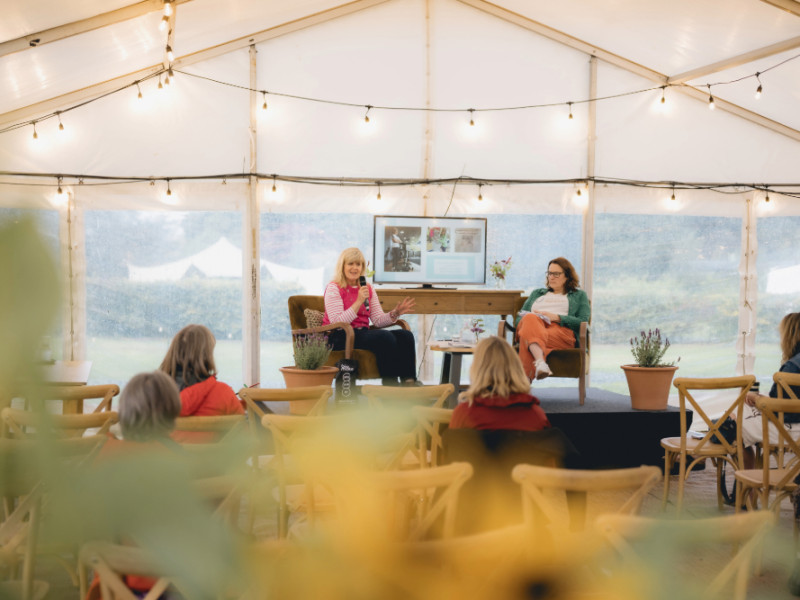From patch to plate
As the spring sun stirs warmth back into the soil, we’re seeing seasonal fruits, vegetables and herbs return to our restaurants’ dishes – many hand-picked from our abundant vegetable patch.
Tended by talented head gardener James Cox, this organic patch helps make the food on your plate as fresh, sustainably sourced and hyper-local as possible.
With new ingredients breaking ground, we checked in with James to chat about the ‘no dig’ method, ingenious ways to combat pests without pesticides, and why coming to this outdoor ‘office’ is really no chore at all…
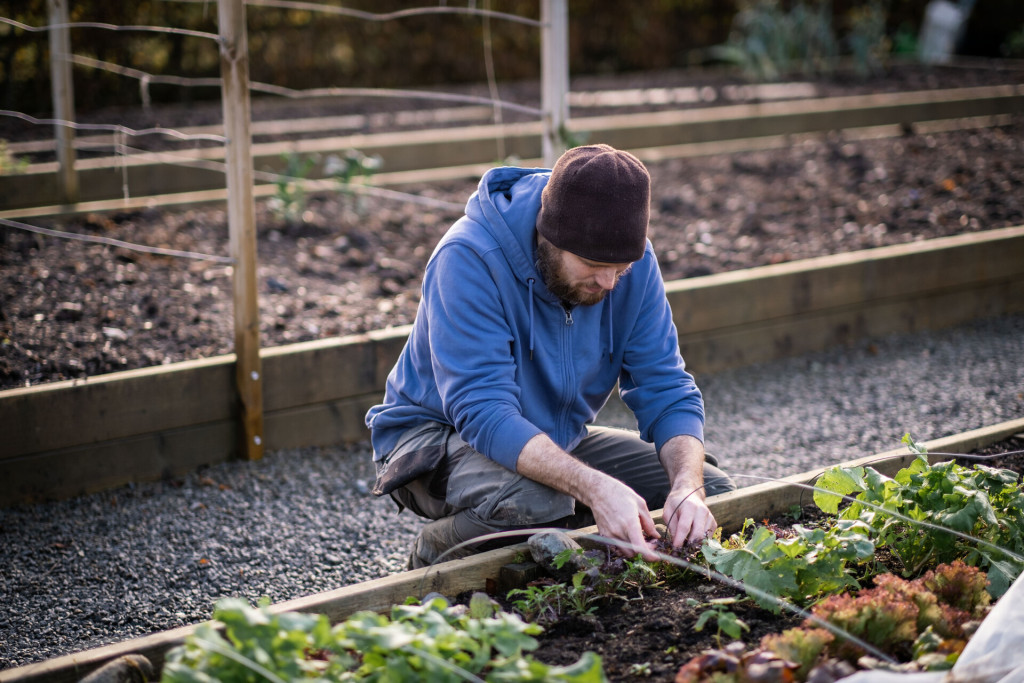
"Like so many people, I started off helping my granny in her veg garden"
says James, recalling his early introduction to growing. “Her love of compost, methods for dealing with slugs and homegrown salads inspired me to pursue a life closer to the ground.”
Today, it’s James’ green-fingered touch that keeps our on-site kitchen garden serving up organic produce for our three restaurants.
From patch to plate
A few times a week, James strolls the short distance across the lawn to the hotel kitchen, arms full with crates of newly harvested bounty. This harvest is gratefully received by the Another Place chefs, who say the quality is far superior to wholesale supplies.
Even the bartenders’ cocktails benefit from fresh berries, herbs and fruits, often hand-picked from the local hedgerows by James. “As we move into spring, rhubarb will be our first kitchen garden fruit to hit the cocktail menu this year,” says James. “Then there’s the various types of mint that always prove popular for decorating and flavouring our bar drinks.”
Together, the chefs and James work out how to get the most useful vegetables for the restaurants from patch to chopping board in the shortest time possible to capitalise on freshness.
“The chefs’ ideas feed into what we grow and how much space we reserve for each vegetable”, explains James. Versatile veg like cauliflower and broccoli are always welcome in the kitchen, so growing them takes up quite a bit of ground. “We balance this with aerial crops that need less space, like mangetout peas. We can continually crop salad leaf and rocket (a process known as ‘cut and come again’) for several weeks, so patches of those work well too.”
As we move through spring, diners in Rampsbeck restaurant can expect to see homegrown rainbow chard, beetroot (“the ever reliable 'Boltardy', our early beetroot of choice”), and a series of imaginative, vegetable-showcasing ‘garden specials’ on the menu, promises James.
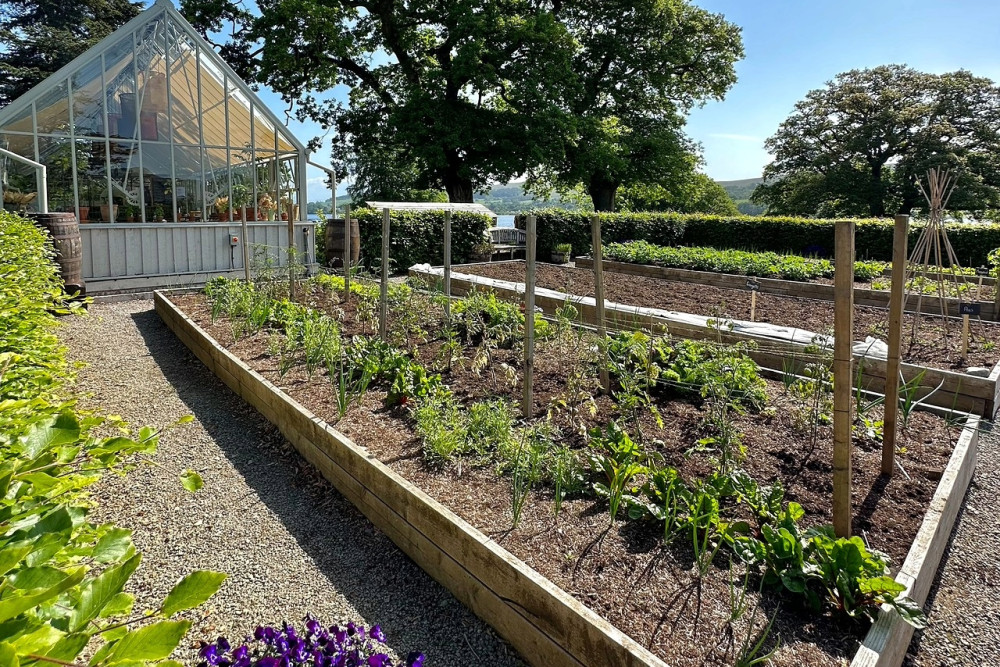
Serving up inspiration
After a few years at Another Place, James is yet to tire of his surroundings. “I’ll be engrossed in a task, and, on straightening up, suddenly see the fells in front of me, features picked out by sunlight, or spot the steamer gently making its way down the lake,” he says. “You can't help but feel grateful to be a small part of this iconic and timeless landscape.”
Nevertheless, the changeable Lake District climate keeps the gardening team on their toes. “The weather here can be as wild as the scenery around us,” explains James. “Rain in all seasons isn’t always guaranteed – as last summer's record dry spell proves. But, generally, we have more water than we need. I watch carefully for any late frosts that may damage early crops and keep fleece handy to protect them. Strong winds can strike even in June, whistling over our garden’s protective beech hedge. This did considerable damage to young French bean plants last year, meaning my garden plan required a bit of a re-think!”
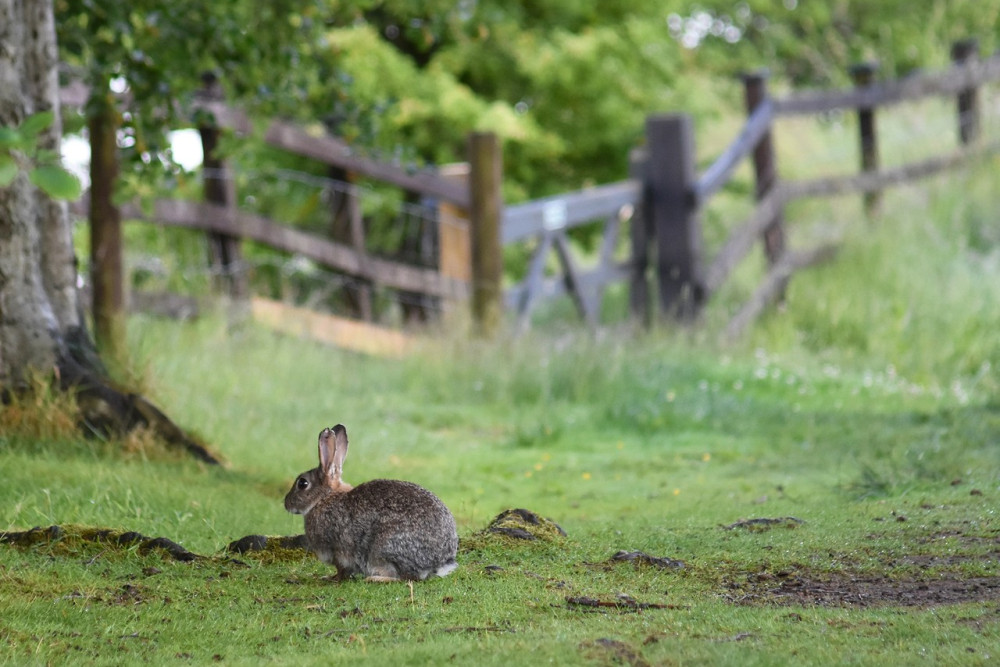
And it’s not just weather that can wreak havoc with James’ harvest. “The first sight of our friend Peter Rabbit bolting away across the paddock in spring is a reminder of the challenges we’ll face over the coming months,” he says. “Flea beetles in particular are a menace for putting tiny holes into salad leaves like rocket and radish.” Thankfully, though, “horticultural fleece really comes into its own here, making it harder for animals and insects to ruin our hard work!”
Breaking new ground
As spring blossoms once more on the shore of Ullswater, expansion of the kitchen garden growing space is well underway.
“We’re gradually planting fruit trees, bushes and wild edibles into the wider grounds for both guests and staff to enjoy,” James tells us. “A small orchard is expanding in a nearby paddock, Japanese wineberries and Amelanchier are now in our native hedging, quince bushes grace the back of the hotel and even the Mahonia bushes in our borders will one day provide berries that can go into jam.”
While James patiently plays the waiting game for future fruit harvests, a gleaming new greenhouse, erected at the end of the kitchen garden, is providing more immediate excitement. “This dedicated horticulture space means we can raise as much produce from seed as possible, massively increasing our ability to take cuttings, extending the growing season and increasing our production of tomatoes and other tender crops.”
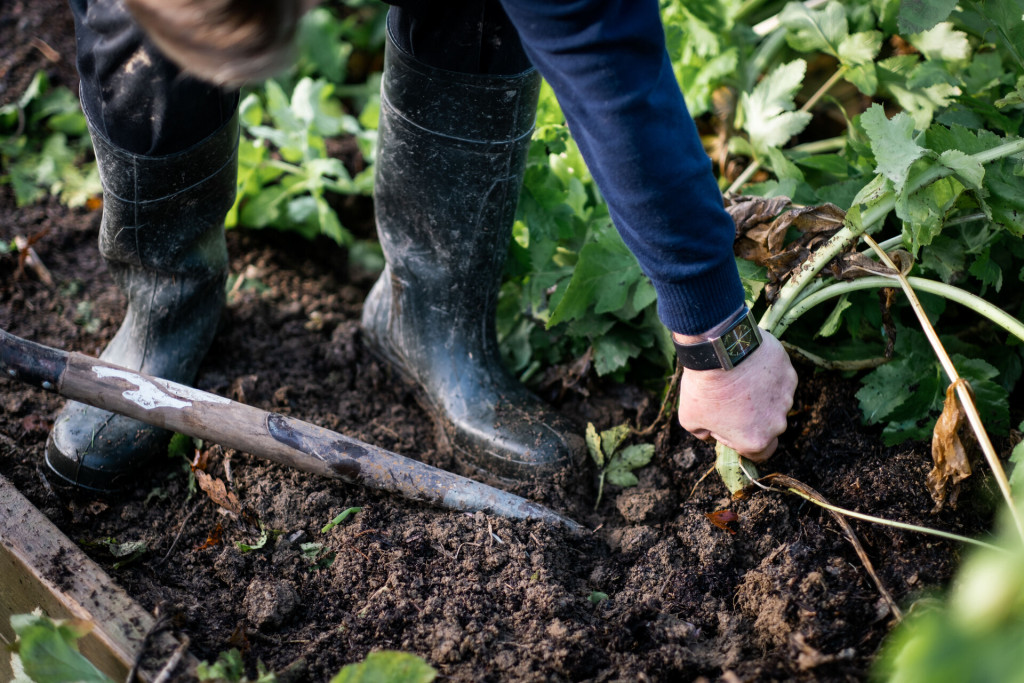
With snow-topped fells and ethereal mists suspended above the lake, winter has its charms for James and the gardening team, but the transition to spring is “always most welcome.” From the “blackbirds tussling with each other in our hedgerows” to the “glorious drifts of daffodils” and the “robins carefully tracking my progress in search of food,” James paints a picture of springtime bliss Beatrix Potter would be proud of.
Why not venture down to this idyllic corner of Cumbria to taste it for yourself?


